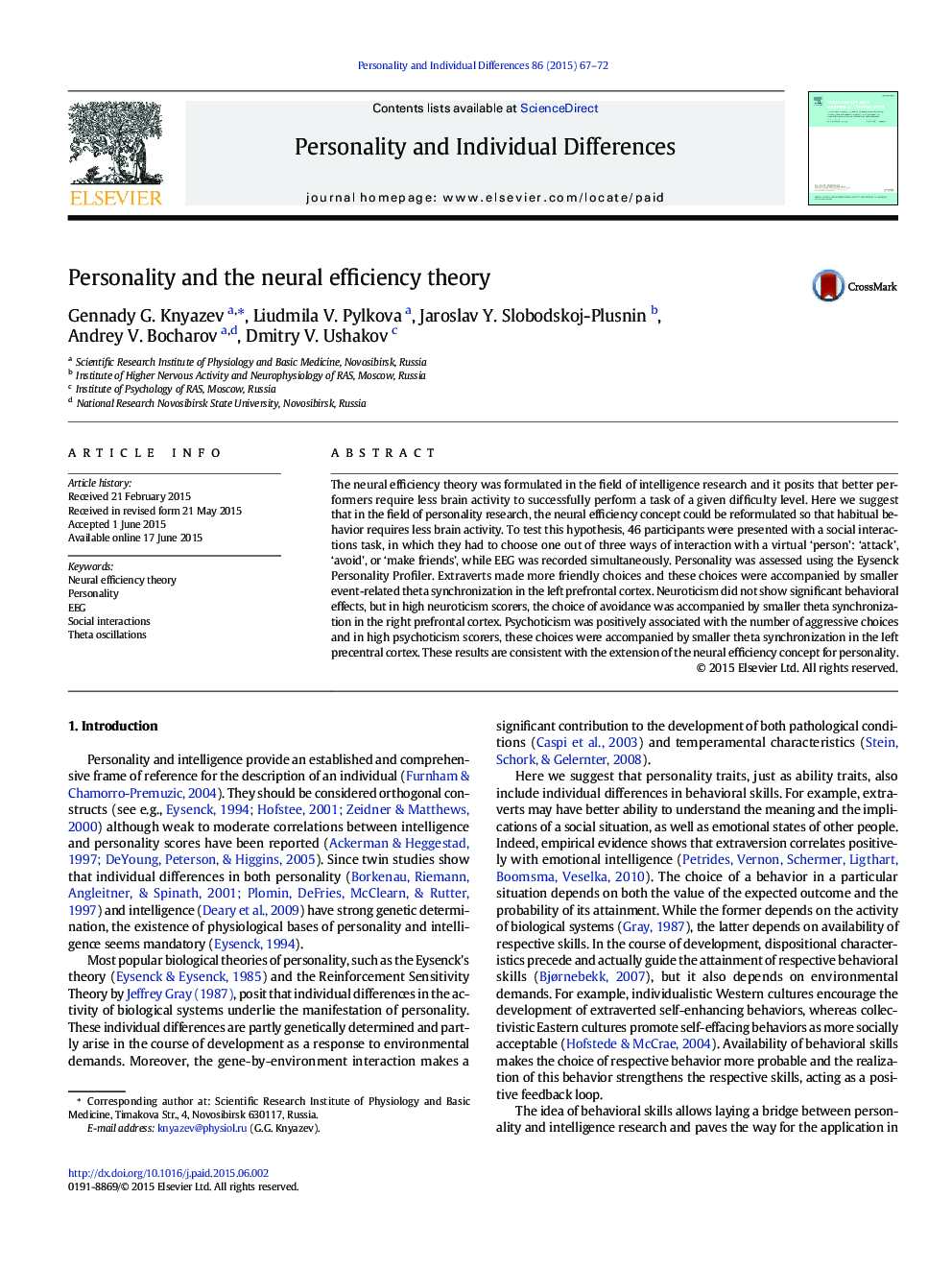| Article ID | Journal | Published Year | Pages | File Type |
|---|---|---|---|---|
| 889957 | Personality and Individual Differences | 2015 | 6 Pages |
•The neural efficiency theory was formulated in the field of intelligence research.•We suggest that it is useful in personality research also.•Habitual behavior requires less brain activity.•EEG response is smaller in high extraversion, neuroticism, and psychoticism scorers during characteristic behavior.
The neural efficiency theory was formulated in the field of intelligence research and it posits that better performers require less brain activity to successfully perform a task of a given difficulty level. Here we suggest that in the field of personality research, the neural efficiency concept could be reformulated so that habitual behavior requires less brain activity. To test this hypothesis, 46 participants were presented with a social interactions task, in which they had to choose one out of three ways of interaction with a virtual ‘person’: ‘attack’, ‘avoid’, or ‘make friends’, while EEG was recorded simultaneously. Personality was assessed using the Eysenck Personality Profiler. Extraverts made more friendly choices and these choices were accompanied by smaller event-related theta synchronization in the left prefrontal cortex. Neuroticism did not show significant behavioral effects, but in high neuroticism scorers, the choice of avoidance was accompanied by smaller theta synchronization in the right prefrontal cortex. Psychoticism was positively associated with the number of aggressive choices and in high psychoticism scorers, these choices were accompanied by smaller theta synchronization in the left precentral cortex. These results are consistent with the extension of the neural efficiency concept for personality.
